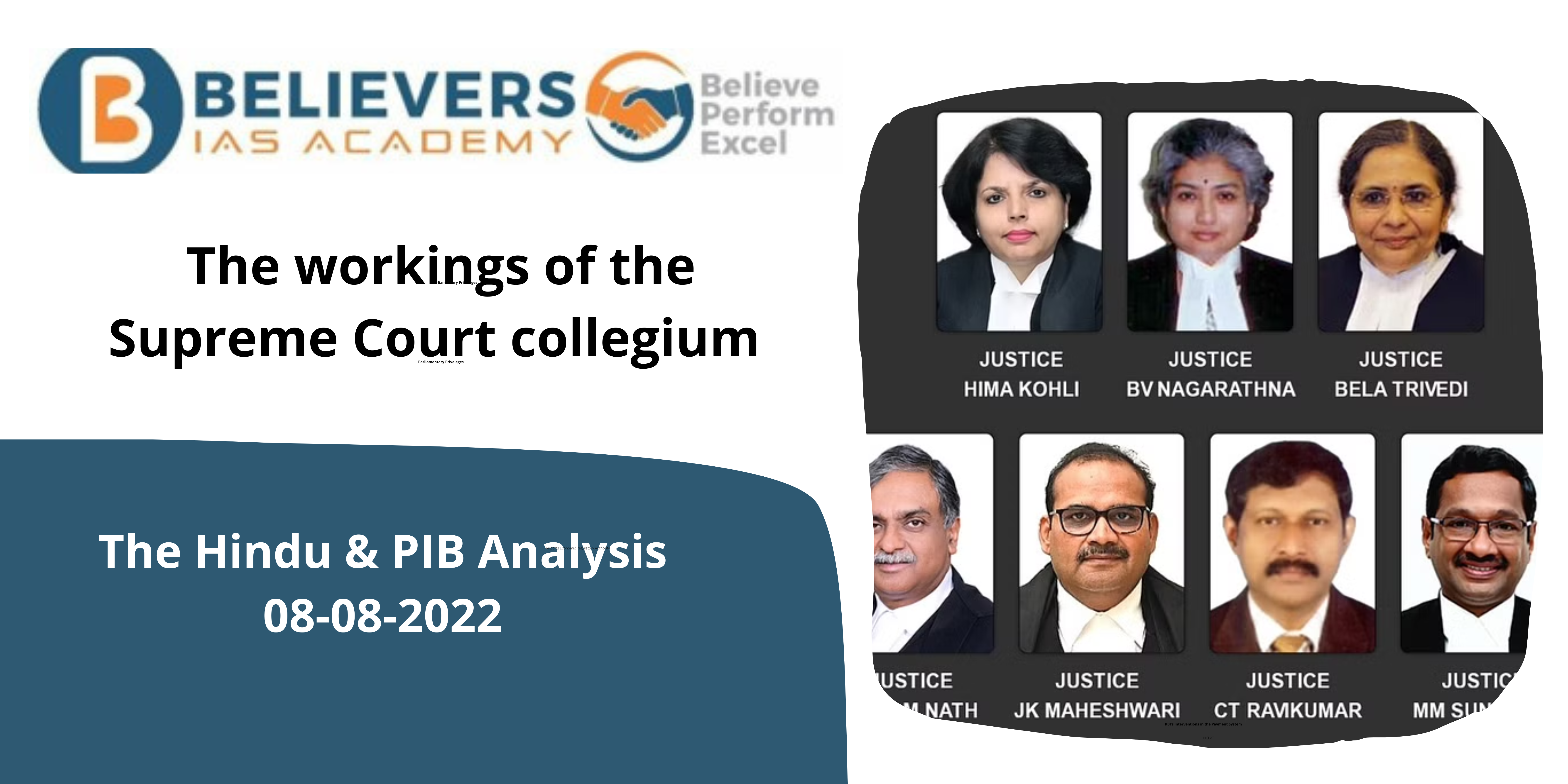The workings of the Supreme Court collegium
For Prelims and Mains
What is Collegium ?
Collegium is a group of Supreme Court judges which include the Chief Justice of India and 4 senior-most judges of the Supreme Court.
The Collegium recommends Judges for appointment to the Supreme Court as well as the High Courts to the President.
They also give recommendations regarding transfer of Judges in High Court.
The recommendations of the Collegium are binding on the President.
Collegium as a concept, evolved through various judicial rulings and is not based on any act or article in the constitution.
Appointment of Judges of Supreme Court
Article 124:
Every Judge of the Supreme Court shall be appointed by the President by warrant under his hand and seal after consultation with such of the Judges of the Supreme Court and of the High Courts in the States as the President may deem necessary for the purpose.
Article 217:
Every Judge of a High Court shall be appointed by the President by warrant under his hand and seal after consultation with the Chief Justice of India, the Governor of the State.
First Judges Case (1981):
Supreme Court held that President must consult with the Chief Justice before appointing any Judge to the Supreme Court or High Court, however, the advise given by the CJI is not binding on the president as ‘consultation’ does not mean ‘concurrence’.
Second Judges Case (1993):
Supreme Court revised its earlier judgement and held that ‘consultation’ means ‘concurrence’ and the advise of CJI is binding on the President.
Moreover, it held that the sole opinion of CJI is insufficient and the advise must be given by CJI and two senior-most Judges of Supreme Court. This is the origin of the Collegium System.
Third Judges Case (1998)
Supreme Court upheld its previous judgement but further clarified the Collegium as a ‘plurality of judges’ and increased the size of Collegium to include CJI and four senior-most judges.




